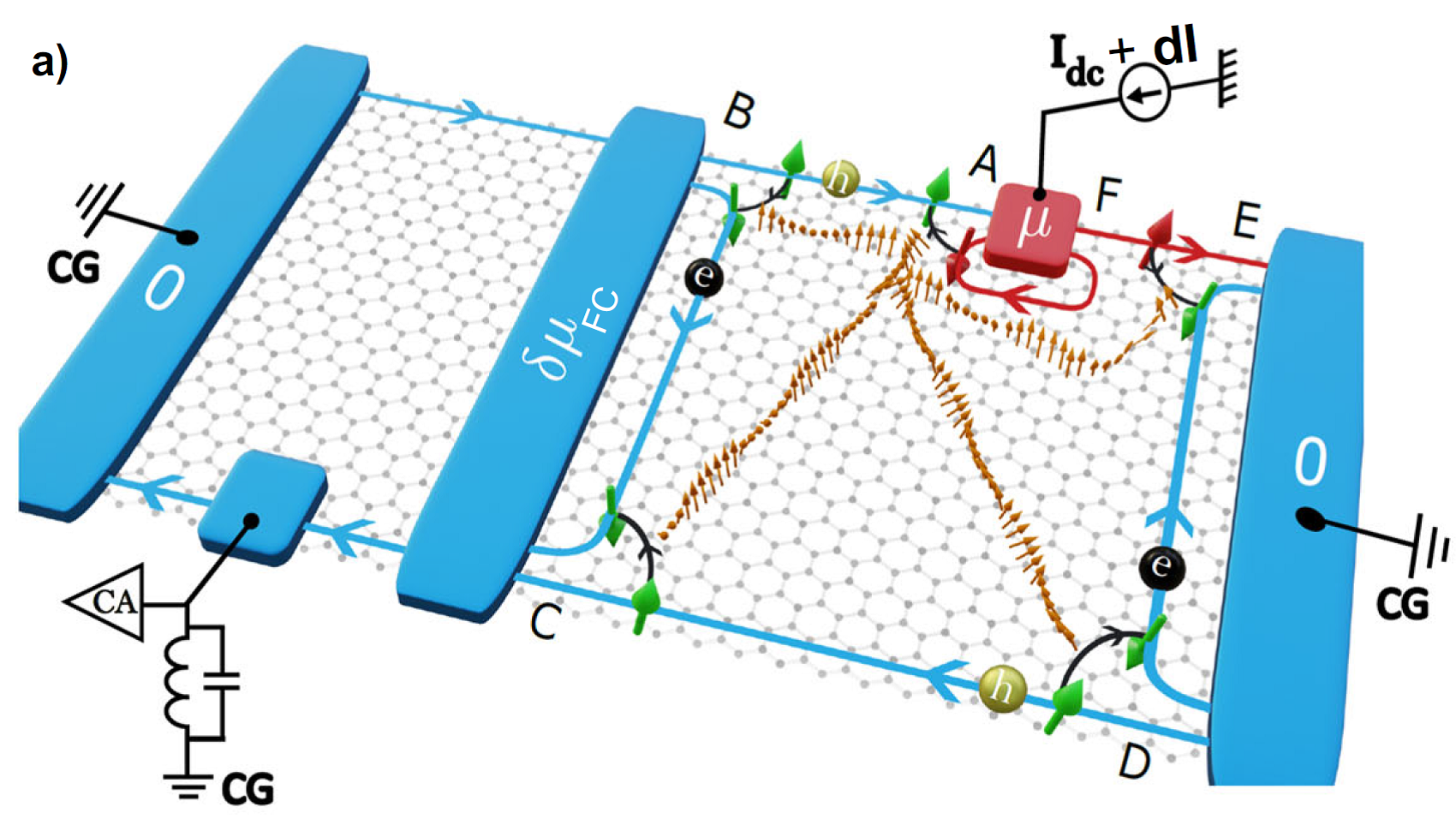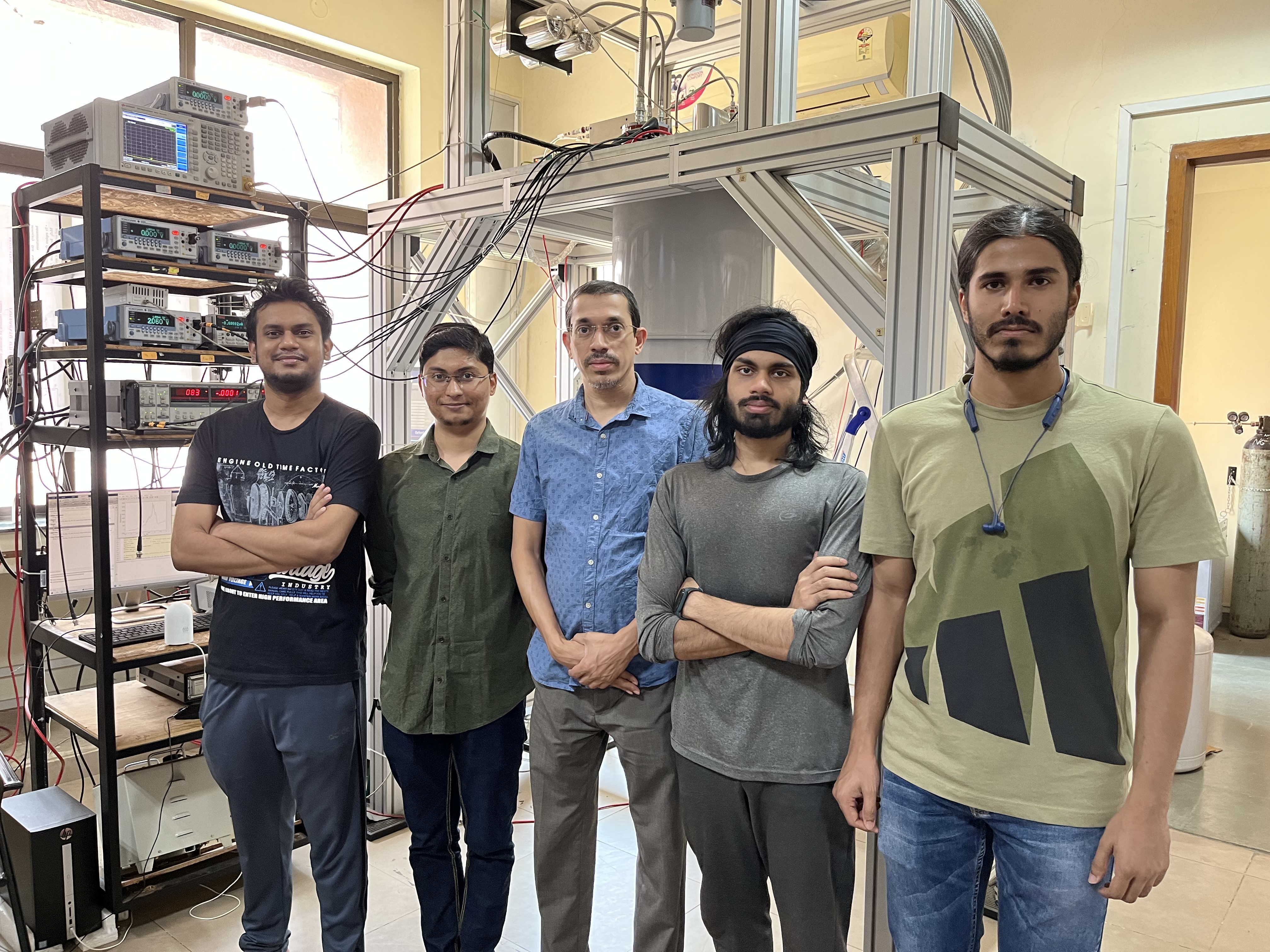Noise to detect electrically neutral magnons in graphene
The emergence of charge-neutral collective excitations presents a powerful platform for data processing as well as information transfer with low power consumption. Among these excitations, spin-wave excitations – or their quanta “magnons” – in magnetic materials are promising.
An important task is to develop new techniques for the detection of these charge-neutral quasi-particles. So far, various experimental tools such as inelastic neutron scattering, inelastic tunneling spectroscopy, terahertz spectroscopy, microwave Brillouin light scattering, nitrogen-vacancy centre, and superconducting qubits have been used to detect magnons in bulk magnetic materials. However, their detection in device geometries, which is necessary for information processing applications, has remained challenging. In a new study, researchers at the Department of Physics led by Anindya Das have overcome this challenge by using noise to detect magnons efficiently in graphene.
The team used the quantum Hall ferromagnet of graphene to launch magnons. Absorption of these magnons creates excess noise above the Zeeman energy and remains finite even when there is no electrical signal detected. Using noise spectroscopy as a highly sensitive tool for detecting and studying magnons in a quantum Hall ferromagnet of graphene paves the way for utilising magnons as low-power information carriers in future quantum technologies. This novel approach can also be applied to other ferromagnetic materials and van der Waals magnets.

Schematic of magnon generation and detection. The magnons are excited using injecting current into quantum Hall of graphene. These generated magnons propagate through the bulk of the device and create excess noise at the absorption points.

REFERENCE:
Kumar R, Srivastav SK, Roy U et al, Electrical noise spectroscopy of magnons in a quantum Hall ferromagnet,
Nature Communications (2024).
https://doi.org/10.1038/s41467-024-49446-z
LAB WEBSITE:
http://www.physics.iisc.ac.in/~anindya/





